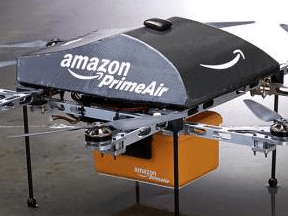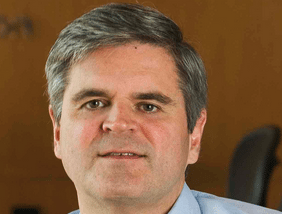Without U.S. Robotics, the pioneering modem manufacturer, there arguably would not be a World Wide Web.
I recently spoke with the co-founder of U.S. Robotics, Casey Cowell, to discuss that company, the early-day Internet, and his current entrepreneurial and civic interests.
Practical Ecommerce: What was a young man thinking in 1976 to get into the modem business?
Casey Cowell: It’s a long story. Public switch telephone networks got essentially upgraded, end to end, to packet switching, which meant that you could go faster and connect disparate users more easily. At the same time, due mainly to Digital Equipment Corporation, time-sharing was adopted broadly, especially at universities and companies.
With time-sharing, they installed modems at the computer center, and you could use a thing called a modem — for modulator-demodulator — and you could connect to computer terminals from a remote site and call into that mainframe, or mini-computer in the case of DEC, over the public switch telephone network.
In the mid-70s, that was starting to take off. There was also the early beginnings of the small-computer and home-computer marketplace. Ken Olsen, the founder and C.E.O. of DEC, made the famous quote, “Why would anyone ever need a computer in their home?” That tells you kind of the state of things around the mid-70s.
We set out to build a keyboard that had a built-in acoustic coupler. It would use alligator clips to connect to your television antenna. You would turn to channel three or four and get a 16-by-48-column display.
We started with $200 cash and a lot of energy. We got the keyboard to work, but we couldn’t afford to produce it. So we just went to market with the modem. That started to take off, and in the first 10 years, people were really buying computer terminals and using them to connect to large and mid-size remote computers.
In 1981 IBM introduced the PC. That legitimized the small personal computer marketplace and saw it start to be accepted as a business tool.
PEC: Were you a student at the University of Chicago then?
Cowell: I graduated in 1975 and went to graduate school at the University of Rochester for one year in a PhD program. I left that to move back to Chicago and start a business with people I knew from college. We got by on sheer energy. Everybody just worked constantly.
We just drove everywhere, pounded on doors, and asked questions, and I would have to say that the city of Chicago was our maker space. We snuck into, at night, the graduate student shop at the Enrico Fermi Institute at the University of Chicago. They had a machine tool center where we learned how to use and make things. We learned how to make the modems from reading Don Lancaster’s “TV Typewriter Cookbook.”
PEC: What was your business model?
Cowell: Our business model was a disaster. We had no idea what we were doing at the start.
We made the products ourselves. Our parts cost on just the raw materials in our first product was, I think, $72. We advertised it for $105; the nearest competitor was well over $700. We would’ve gotten killed, but we could never bring it to market, so we reorganized.
PEC: You had two main products, the Robotics Sportster modem and the Palm Trio, a company that U.S. Robotics acquired. Was that in the 1990s?
Cowell: Yes, ’94 or ’95. What was great about all of our products is that we, unlike all of our competitors, figured out how to build the engine or the data pump ourselves using off-the-shelf digital signal processors.
It was easy to get leverage or economies of scale because we used the same engine in a broad and ever-expanding array of products that functioned on both ends of the telephone call.
I think we did help to grow the market. The Sportster plus our products on the answer side enabled the Internet to happen when people wanted to go faster, and it was starting to take off. We weren’t the cause of it, but we helped push it along, and lots of other companies did, too. It was a really exciting time.
PEC: Fast forward to 2016. What are your interests?
Cowell: I’m a private investor in a wide range of companies in many industries, and some definitely in technology. I live and work in Traverse City, Michigan. I’ve always liked smaller communities. I’ve been in this area for a long time, since 1991.
For me, the Traverse City area is fabulous because it’s smaller, and there are many bright people here.
PEC: You head a group of Traverse City technology entrepreneurs who encourage other businesses to relocate or launch in the area. What is the attraction of moving from, say, Chicago or New York to Traverse City? Why should a business or an employee do that?
Cowell: The reason is to live in a smaller community, to be more plugged in. It’s less expensive and more rewarding, at least for me. In a smaller community you can get outdoors and focus on what you want to focus on, especially with families, more easily.
You can, with the web, participate virtually in any sort of activity or organization.
Being in a community that can be supportive is great. You can find that in a lot of small communities because bright people who create value, in many cases, decide that they would rather live in a small area rather than a big city. That’s what Traverse City is all about. I invite entrepreneurs and executives who are interested in learning more about Traverse City to send me an email.





